- Home
- Frederick Douglass
The Color Line in America Page 2
The Color Line in America Read online
Page 2
In the abstract, there is no prejudice against color. No man shrinks from another because he is clothed in a suit of black, nor offended with his boots because they are black. We are told by those who have resided there that a white man in Africa comes to think that ebony is about the proper color for man. Good old Thomas Whitson -- a noble old Quaker -- a man of rather odd appearance -- used to say that even he would be handsome if he could change public opinion.
Aside from the curious contrast to himself, the white child feels nothing on the first sight of a colored man. Curiosity is the only feeling. The office of color in the color line is a very plain and subordinate one. It simply advertises the objects of oppression, insult, and persecution. It is not the maddening liquor, but the black letters on the sign telling the world where it may be had. It is not the hated Quaker, but the broad brim and the plain coat. It is not the hateful Cain, but the mark by which he is known. The color is innocent enough, but things with which it is coupled make it hated. Slavery, ignorance, stupidity, servility, poverty, dependence, are undesirable conditions. When these shall cease to be coupled with color, there will be no color line drawn. It may help in this direction to observe a few of the inconsistencies of the color-line feeling, for it is neither uniform in its operations nor consistent in its principles. Its contradictions in the latter respect would be amusing if the feeling itself were not so deserving of unqualified abhorrence. Our Californian brothers, of Hibernian descent, hate the Chinaman, and kill him, and when asked why they do so, their answer is that a Chinaman is so industrious he will do all the work, and can live by wages upon which other people would starve. When the same people and others are asked why they hate the colored people, the answer is that they are indolent and wasteful, and cannot take care of themselves. Statesmen of the South will tell you that the negro is too ignorant and stupid properly to exercise the elective franchise, and yet his greatest offense is that he acts with the only party intelligent enough in the eyes of the nation to legislate for the country. In one breath they tell us that the negro is so weak in intellect, and so destitute of manhood, that he is but the echo of designing white men, and yet in another they will virtually tell you that the negro is so clear in his moral perceptions, so firm in purpose, so steadfast in his convictions, that he cannot be persuaded by arguments or intimidated by threats, and that nothing but the shot-gun can restrain him from voting for the men and measures he approves. They shrink back in horror from contact with the negro as a man and a gentleman, but like him very well as a barber, waiter, coachman, or cook. As a slave, he could ride anywhere, side by side with his white master, but as a freeman, he must be thrust into the smoking- car. As a slave, he could go into the first cabin; as a freeman, he was not allowed abaft the wheel. Formerly it was said he was incapable of learning, and at the same time it was a crime against the State for any man to teach him to read. To-day he is said to be originally and permanently inferior to the white race, and yet wild apprehensions are expressed lest six millions of this inferior race will somehow or other manage to rule over thirty-five millions of the superior race. If inconsistency can prove the hollowness of anything, certainly the emptiness of this pretense that color has any terrors is easily shown. The trouble is that most men, and especially mean men, want to have something under them. The rich man would have the poor man, the white would have the black, the Irish would have the negro, and the negro must have a dog, if he can get nothing higher in the scale of intelligence to dominate. This feeling is one of the vanities which enlightenment will dispel. A good but simple-minded Abolitionist said to me that he was not ashamed to walk with me down Broadway arm-in-arm, in open daylight, and evidently thought he was saying something that must be very pleasing to my self-importance, but it occurred to me, at the moment, this man does not dream of any reason why I might be ashamed to walk arm-in-arm with him through Broadway in open daylight. Riding in a stage-coach from Concord, New Hampshire, to Vergennes, Vermont, many years ago, I found myself on very pleasant terms with all the passengers through the night, but the morning light came to me as it comes to the stars; I was as Dr. Beecher says he was at the first fire he witnessed, when a bucket of cold water was poured down his back -- "the fire was not put out, but he was." The fact is, the higher the colored man rises in the scale of society, the less prejudice does he meet.
The writer has met and mingled freely with the leading great men of his time, -- at home and abroad, in public halls and private houses, on the platform and at the fireside, -- and can remember no instance when among such men has he been made to feel himself an object of aversion. Men who are really great are too great to be small. This was gloriously true of the late Abraham Lincoln, William H. Seward, Salmon P. Chase, Henry Wilson, John P. Hale, Lewis Tappan, Edmund Quincy, Joshua R. Giddings, Gerrit Smith, and Charles Sumner, and many others among the dead. Good taste will not permit me now to speak of the living, except to say that the number of those who rise superior to prejudice is great and increasing. Let those who wish to see what is to be the future of America, as relates to races and race relations, attend, as I have attended, during the administration of President Hayes, the grand diplomatic receptions at the executive mansion, and see there, as I have seen, in its splendid east room, the wealth, culture, refinement, and beauty of the nation assembled, and with it the eminent representatives of other nations, -- the swarthy Turk with his "fez," the Englishman shining with gold, the German, the Frenchman, the Spaniard, the Japanese, the Chinaman, the Caucasian, the Mongolian, the Sandwich Islander, and the negro, -- all moving about freely, each respecting the rights and dignity of the other, and neither receiving nor giving offense.
"Then let us pray that come it may,
As come it will for a' that,
That sense and worth, o'er a' the earth,
May bear the gree, and a' that;
"That man to man, the world o'er,
Shall brothers be, for a' that."
FREDERICK DOUGLASS.

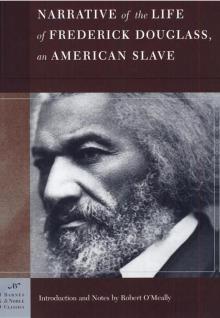 Narrative of the Life of Frederick Douglass: An American Slave
Narrative of the Life of Frederick Douglass: An American Slave My Bondage and My Freedom
My Bondage and My Freedom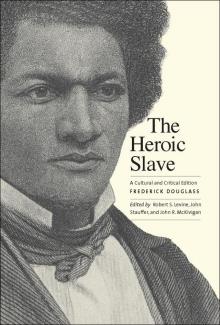 Two Slave Rebellions at Sea
Two Slave Rebellions at Sea The Color Line in America
The Color Line in America The Negro Exodus from the Gulf States
The Negro Exodus from the Gulf States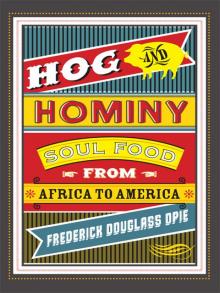 Hog and Hominy: Soul Food From Africa to America
Hog and Hominy: Soul Food From Africa to America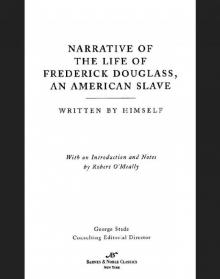 Narrative of the Life of Frederick Douglass
Narrative of the Life of Frederick Douglass![An Appeal to Congress for Impartial Suffrage [a machine-readable transcription] Read online](http://i1.bookreadfree.com/i/03/23/an_appeal_to_congress_for_impartial_suffrage_a_machine-readable_transcription_preview.jpg) An Appeal to Congress for Impartial Suffrage [a machine-readable transcription]
An Appeal to Congress for Impartial Suffrage [a machine-readable transcription] The Color Line
The Color Line My Bondage and My Freedom (Penguin Classics)
My Bondage and My Freedom (Penguin Classics)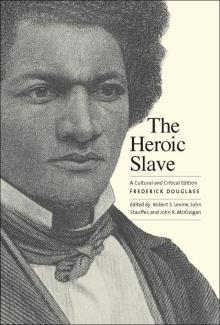 The Heroic Slave
The Heroic Slave